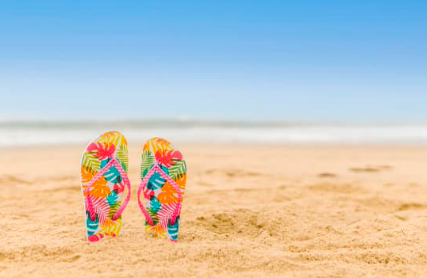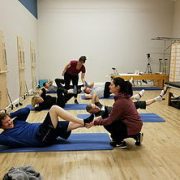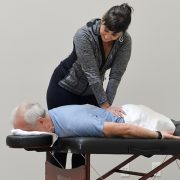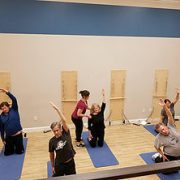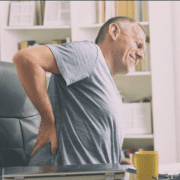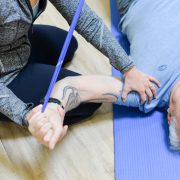Are Flip flops Aggravating Your Plantar Fasciitis?
Now that summer is here – it’s flip flop and sandal season for many. Unfortunately, this also typically results in a rise in foot pain and plantar fasciitis cases. One of my readers recently wrote to me and asked about this.
Here’s what Jennifer wanted to know:
“Now that I’m wearing flip flops again, I noticed that my plantar fasciitis is acting up. Is there anything I can do? Do I need to stop wearing flip flops?”
This is a great question Jennifer. In order to answer your question, let’s look at a few reasons why plantar fasciitis occurs in the first place. Ideally, if you can stay on top of your plantar fasciitis and/or prevent it all together, flip flops won’t even be an issue.
First – what is plantar fasciitis?
It’s inflammation of your plantar fascia – the tissue that makes up the arch (bottom) of your foot. Your plantar fascial runs from the base of your heel, down the length of your foot, and into your toes. It’s responsible for both the mobility and stability of your foot so that you can propel yourself during walking and running. When you land on your foot your arch falls or flattens – this is called pronation. The response to this action is that your foot then stiffens or supinates – this is where your foot gets the power to push off. If any part of this mechanism is not functioning properly, your plantar fascia can become stressed and overworked – leading to inflammation/plantar fasciitis.
What causes your plantar fascia to become overworked?
Basically anything that impacts or disrupts the natural mechanics of your foot to pronate and supinate. Most commonly, poor mobility in either your ankle or 1st toe is the culprit – but even tight hips and weak glutes can cause problems all the way down to your foot. Anything that impacts the way your foot hits the ground has an opportunity to influence the level of force and energy transmitted through your foot and arch when you walk, which in turn impacts the natural pronation/supination mechanism. When disrupted, your plantar fascia will attempt to compensate for the pronation/supination mechanism. If this continues to happen, your plantar fascia eventually becomes angry and irritated – resulting in plantar fasciitis.
Flip flops, or any other shoe for that matter, can either “protect” your arch, or cause it to overwork. Technically speaking, if your foot mechanics are sound and the arch of your foot is strong and mobile, footwear should have a negligible impact on your plantar fascia. Sadly, this is rarely the case for many people. Because of how much we sit, and how little we walk around barefoot, the bottoms of our feet are simply not as conditioned as they could be. This is really the problem – not so much what you put on your feet. If you’re accustomed to wearing supportive and cushioned shoes all the time, and then suddenly switch to flatter, less supportive flip flops in the summer, it’s going to be a shock to your foot. And if you’re prone to plantar fasciitis, it’s going to flare up during flip flop season.
The best thing you can do to prevent and treat plantar fasciitis is to not neglect your feet.
Performing consistent mobility exercises for your toes and ankles is key, as well as conditioning for the strength and stability of your arch. Balance exercises, toe exercises, and plyometric (jumping) exercises are all important, as well as making it a point to walk around without shoes as often as you can. If you’ve already got an ongoing problem with your foot, then I wouldn’t recommend haphazardly incorporating these exercises into your routine without guidance. Talk to an expert who can help you. Plantar fasciitis, when addressed correctly, is very treatable, and you could be back to enjoying flip flops in no time.
Are you local to Portsmouth, NH and looking for help with foot pan?
CLICK HERE to request a discovery call with our Client Success Team to see if we would be a good fit for you!
Dr. Carrie Jose, Physical Therapist and Pilates expert, owns CJ Physical Therapy & Pilates in Portsmouth and writes for Seacoast Media Group. To get in touch, or request a free copy of one of her guides to back, neck, knee, or shoulder pain, email her at [email protected].

